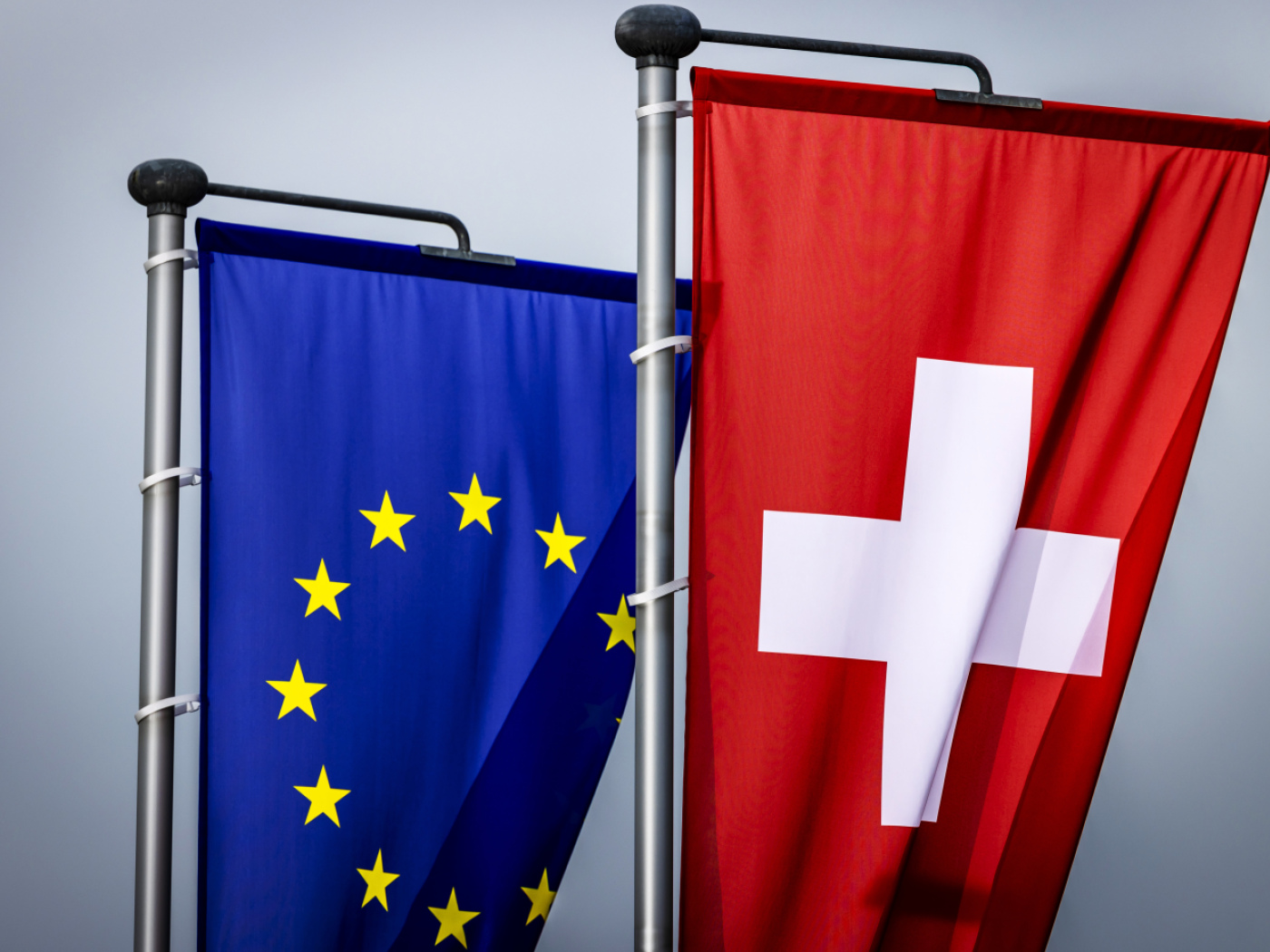
Survey: simple majority sufficient to move forward with Swiss-EU deal

More than half of Swiss people (51%) believe that a majority of the people is sufficient to approve or reject the new package of bilateral agreements with the European Union. A poll published on Saturday shows that 39% of Swiss people want a double majority of the people and the cantons.
+Get the most important news from Switzerland in your inbox
There are major differences depending on the language, sex and level of education of those questioned, according to this survey by the Demoscope institute for the Infosperber portal. While 53% of people in German-speaking Switzerland support a simple majority, only 45% in French-speaking Switzerland do so. Conversely, 38% of those polled in the German-speaking part of Switzerland and 43% in French-speaking Switzerland would like to see a double majority.
Similarly, 56% of men, compared with 46% of women, would be satisfied with a popular majority. And 57% of people with a high level of education reject a double majority, compared with 44% of people who have completed compulsory schooling or have an average level of education.

More
The Swiss-EU bilateral treaty updates, explained
Debates in Parliament
The consultation procedure ended on Friday. The federal government plans to submit its message to Parliament in the first quarter of 2026.
The two chambers will then have to decide whether to submit the package to an optional (simple majority) or mandatory (double majority) referendum. A vote is scheduled for 2027 at the earliest. The new agreements would then enter into force in 2028 at the earliest.
A total of 1,002 people were questioned in German- and French-speaking Switzerland between October 16 and 26. The margin of error is ± 3.1 percentage points.
What is your opinion? Join the debate:
Translated from French by DeepL/jdp
We select the most relevant news for an international audience and use automatic translation tools to translate them into English. A journalist then reviews the translation for clarity and accuracy before publication.
Providing you with automatically translated news gives us the time to write more in-depth articles. The news stories we select have been written and carefully fact-checked by an external editorial team from news agencies such as Bloomberg or Keystone.
If you have any questions about how we work, write to us at english@swissinfo.ch

In compliance with the JTI standards
More: SWI swissinfo.ch certified by the Journalism Trust Initiative






























You can find an overview of ongoing debates with our journalists here . Please join us!
If you want to start a conversation about a topic raised in this article or want to report factual errors, email us at english@swissinfo.ch.